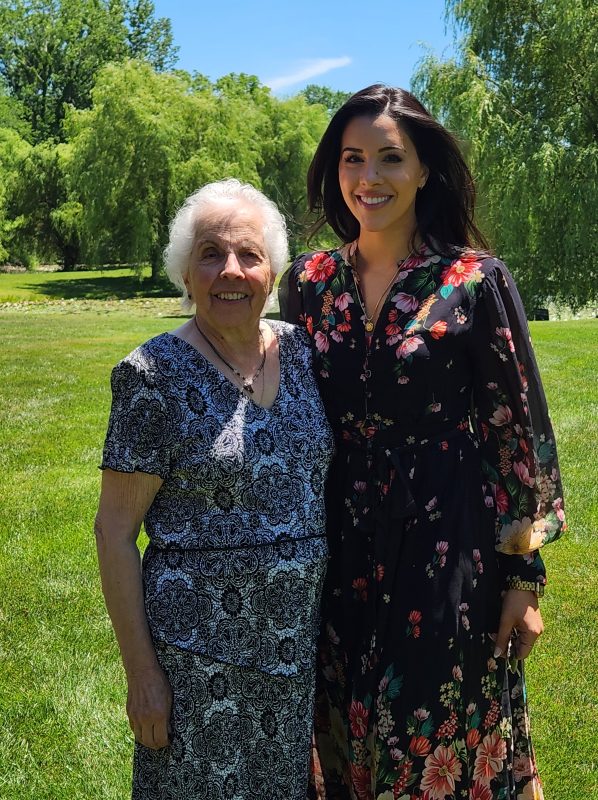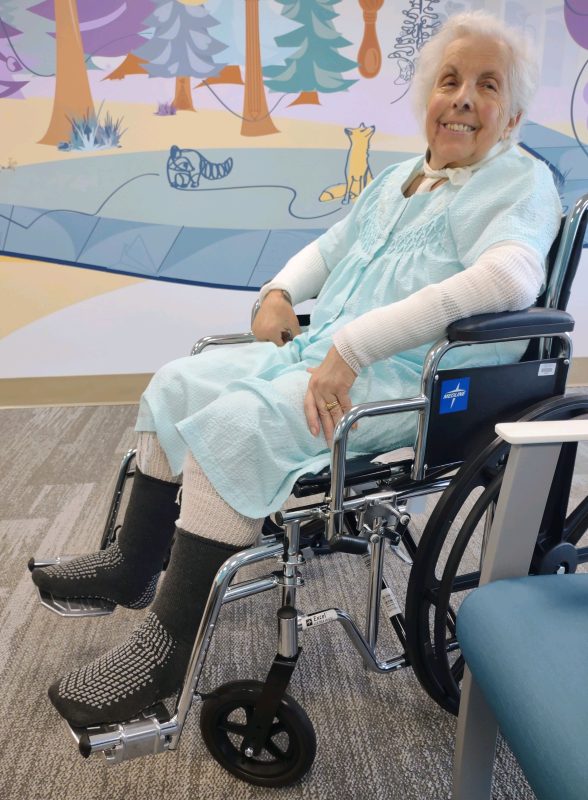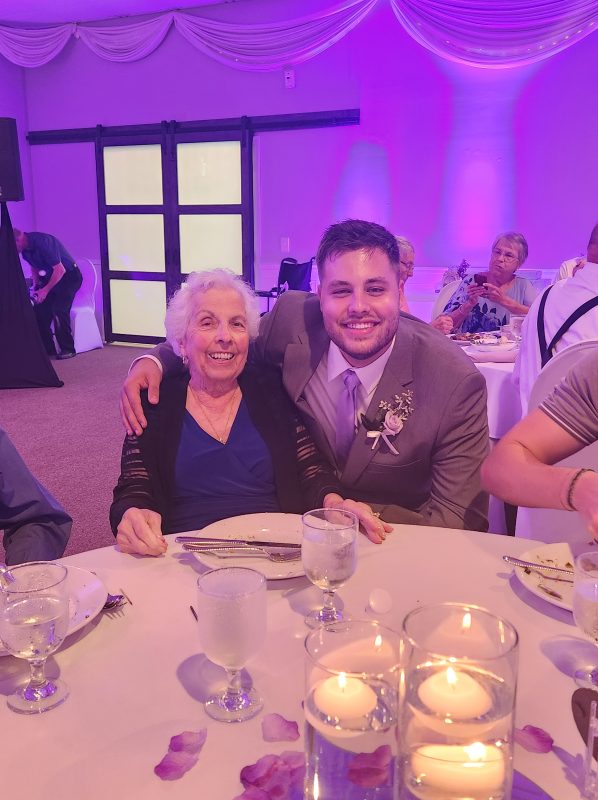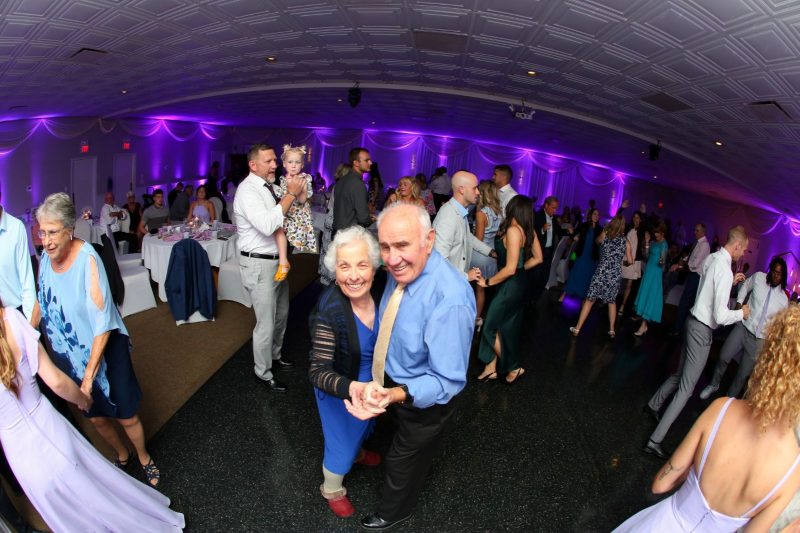
Sylvia Margert pictured with her granddaughter, Isabella, prior to falling ill with pemphigus vulgaris in 2020.
As a NICU nurse at Akron Children’s, Rita Vitale is no stranger to caring for the tiniest, most fragile patients. However, she never expected that the same hospital would provide critical care to her 82-year-old mother, Sylvia.
In 2020, during the height of the COVID pandemic, Sylvia began developing red patches on her scalp that oozed and scabbed. Blood-filled blisters soon appeared in her mouth, leading to a dermatologist’s diagnosis: pemphigus vulgaris, a severe autoimmune disease characterized by painful blisters on the skin and mucous membranes.
Determined to avoid overwhelming her mother with medication, Rita initially treated Sylvia’s condition with topical creams and steroids. But as the sores spread painfully across her body, Rita realized she needed expert help. “Within a week, her wounds went from eight to more than I could count,” she said.

Sylvia was so thrilled with the care she received at Akron Children’s Adult and Pediatric Burn Institute that she didn’t want to leave!
Rita reached out to the Akron Children’s Adult and Pediatric Burn Institute for guidance. After receiving a referral, Sylvia was admitted. There, the Burn Center nurses quickly dressed her extensive wounds with specialized antimicrobial foam dressings, providing much-needed relief.
“Pemphigus vulgaris is an autoimmune condition characterized in part by many painful blisters and large skin erosion on the body mimicking deep second degree burns,” said Dr. Anjay Khandelwal, director of the Adult and Pediatric Burn Institute at Akron Children’s and Sylvia’s physician. “Sylvia’s wounds were treated with specialized cleansing and covered with antibiotic impregnated dressings.
“With age comes thinner skin,” he added. “Meticulous wound care to prevent further damage and allow healing was critical as was managing her co-existing medical conditions, like diabetes, that required several specialists to participate in her care.”

While hospitalized, Sylvia set a goal to be out in time so that she could attend her grandson Christian’s wedding.
Sylvia remained hospitalized at Akron Children’s for five days and then received outpatient care for three weeks following her discharge.
“When they told her she was going to be discharged, she told them she liked it here and she didn’t want to leave,” said Rita.
“I’m so thankful Akron Children’s wasn’t afraid to take on the care of this rare disease in an 82-year-old,” said Rita. “We were so grateful to have her get some relief and comfort.”
Sylvia is now receiving infusions of Rituxan, a drug that targets specific types of cells that make antibodies. In combination with prednisone, the hope is it will keep her condition under control.
“Immunotherapy medications, such as Rituxan, fight certain immune cells thereby suppressing the immune system,” said Dr. Khandelwal. “While keeping the pemphigus vulgaris at bay, it also limits the body’s ability to fight infections, which can be serious. These medications are key, however, to treat and manage autoimmune disease.”

Sylvia and her husband, Jakob, dancing at her grandson’s wedding. Sylvia is now receiving infusions of Rituxan, a drug that targets specific types of cells that make antibodies in combination with prednisone in hopes of keeping her condition under control.
While in the hospital, Sylvia set a personal goal: to attend her grandson’s wedding. “Not only did I go, but I also danced,” she said, reflecting on her recovery. “The kind, professional care I received made all the difference.”
Dr. Khandelwal emphasized that the Burn Institute’s expertise extends beyond traditional burn care.
“We receive referrals from all over the region, as we are not merely burn experts, but we also specialize in ‘soft-tissue coverage’ or getting complex wounds to heal,” he said. “This is due to the high quality of care provided by our multi-disciplinary team which is crucial to managing complex cases.
“We have the resources of a burn dressing team, specialized dressings and cleansing protocols, as well as specialized procedure rooms that are essentially unavailable at other hospitals,” he added.
To learn more, visit Burn Institute.










